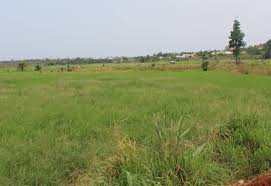DISCLAIMER NOTICE
Stop! Important Advisory: Read Before Buying Land in Ghana as a Diasporan
The DAGH Credibility Commitment
If you’re planning to acquire land in Ghana from abroad, please remember this is a high‑stakes YMYL (Your Money or Your Life) matter. Our goal is to provide experience‑based guidance yet your secure ownership still depends on official compliance, rightful documentation, and legal registration in Ghana.
🚨 Alert: Land Ownership Doesn’t End With Payment
Purchasing land in Ghana involves due diligence, legal verification, surveying, registration, and ongoing protection. Even after you pay, your rights aren’t fully secured until you complete all official steps and your name is properly recorded. Relying solely on informal promises or unverified documentation could lead to disputes, financial loss, or being denied enforceable ownership.
Legal & Accuracy Statement
- Informational Use Only: This article provides general guidance on how diasporans can avoid land disputes in Ghana; it is not exhaustive or tailored legal advice.
- Not Legal Advice: DAGH is an advocacy and support organisation, not a lawyer or government authority in land administration.
- Dynamic Regulations & Risks: Land laws, documentation requirements, surveying standards, registration processes and dispute‑resolution mechanisms can change at any time in Ghana. DAGH assumes no responsibility for losses, disputes, denied transactions or ownership issues arising from reliance solely on this content.
For many diasporans, owning land in Ghana represents more than just an investment It is a way to reconnect with their roots, secure a home base, and build wealth. However, land disputes are one of the most common challenges diasporans face. To avoid costly mistakes and protect your investment, it is essential to follow the right steps.
Conduct Thorough Due Diligence
1.Verify ownership with the Lands Commission before making any payments.
2. Check stools or family land carefully to ensure it hasn’t been sold multiple times.
3. Confirm that the land is free from government acquisition or litigation.
Engage a Licensed Surveyor
1.Hire a certified surveyor to measure and map the land.
2. Ensure the site plan matches the documents provided.
3. Identify encroachments and exact boundaries before purchase.
Use a Trusted Lawyer
1.Work with a lawyer specializing in land law.
2. Insist on a written Sale and Purchase Agreement.
3. Verify documents such as the Indenture, Land Title Certificate, or Lease Agreement before signing.
Register the Land Immediately
1.Register the land at the Lands Commission in your name.
2. Apply for a Title Certificate for stronger protection than an indenture.
3. Registration ensures your name is in the national database, protecting against future disputes.
Avoid Informal Transactions
1.Avoid verbal agreements or transactions without documentation.
2. Always request official receipts for payments.
3. Be cautious of family members or middlemen selling land without authority.
Secure the Land After Purchase
1.Fence or demarcate the land to prevent encroachment.
2. Place a caretaker if you’re often abroad.
3. Regular monitoring deters squatters.
Leverage Diaspora Support Services
Diaspora Advocacy Ghana provide support in navigating the property system. Diaspora Affairs Ghana connect diasporans with legal experts, trusted surveyors, and advocacy resources.
Conclusion
The best way to avoid land disputes in Ghana as a diasporan is to verify, document, and register every transaction with the help of Diaspora Affairs Ghana. With the right approach, your investment will be safe and secure, allowing you to enjoy the benefits of owning property back home.




